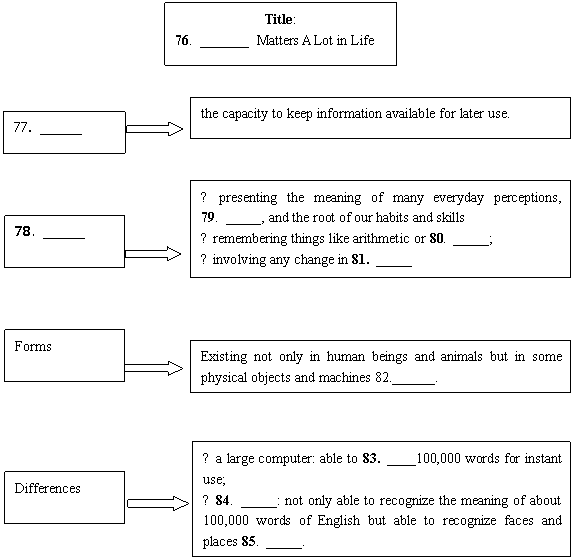题目内容
When a rather dirty , poorly dressed person kneels at your feet and puts out his hands to beg for a few coins , do you hurry on , not knowing what to do , or do you feel sad and hurriedly hand over some money ? What should our 36 to beggars be ? There can be no question that the world is full of terribly sad stories . It must be terrible to have no idea 37 our next meal is going to come from . It seems 38 not to give some money to beggars .
Certainly , most of the world’s great religions order us to be open-hearted and 39 what we have with those less 40 than ourselves .But has the world changed ? Maybe what was morally right in the old days ,41 one knew exactly who in the village had 42 misfortune and needed help ,is no longer the best idea. 43 a few people will not give to beggars .Let us look at their 44 .
First ,some believe that many city beggars dress up 45 to look pitiable and actually make a good living 46 begging . Giving to beggars only 47 this sort of evil(恶行). Secondly ,there is the worry that the money you give will be spent on beer ,wine or drugs. Thirdly ,there is the opinion that there is no real 48 for begging. One might be poor ,but that is no reason for losing one’s 49 of pride and self-dependence.
50 to this is the opinion that the problem should be dealt with by the government 51 than ordinary people. Some people think beggars should go to the local government department and receive help.
It is hard to come to any final 52 ;there are various cases and we must deal with them 53 .A few coins can save a life in some 54 ,and even if the money is 55 ,that does not take away the moral goodness of the giver.
36.A.direction B.system C.sympathy D.attitude
37.A.that B.where C.which D.when
38.A.honourable B.valuable C.cruel D .humble
39.A.apply B.supply C.share D.obtain
40.A.fortunate B.serious C.precious D.normal
41.A.as B.when C.where D.because
42.A.adopted B.adapted C.suffered D.prepared
43.A.Only B.Quite C.Just D.But
44.A.agreements B.achievements C.movements D.arguments
45.A.by chance B.in detail C.on purpose D.at once
46.A.for B.from C.of D.at
47.A.encourages B.illustrates C.enables D.realizes
48.A.good B.increase C.necessity D.excuse
49.A.sense B.feelings C.opinion D.hope
5O.A.Related B.According C.Owing D.Thanks
51.A.more B.1ess C.rather D.far
52.A.decision B.argument C.settlement D.conclusion
53.A.carefully B.differently C.1ately D.hardly
54.A.conditions B.relations C.calculations D.situations
55.A.spent B.wasted C.saved D.paid
36.D 37.B 38.C39.C40.A 41.B42.C43.B44.D45.C 46.B47.A
48.D49.A50.A51.C 52.D53.B 54.D 55.B
解析:
36.由上句可知:我们对乞讨者的态度是什么呢?
37. where引导的宾语从句。
38.不给乞讨者钱看起来很残酷。
39. share…with 与…共享,
40.社会要求我们和那些经济上不如我们的人分享所有。
41. when引导的时间状语从句。
42. suffer意为“忍受,遭受”。
43. quite a few为固定词组,意为“相当多”。
44.此处arguments表示“看法,观点”。
45.由“and actually make a good living”可知。
46. from表示富足生活的来源。
47.帮助乞讨者只能助长这种恶行。
48.他们认为乞讨没有任何真正的借口。
49. sense of pride意为“自尊感”。
50. related to意为“与……有关”。
51. more than为固定词组,意为“而不是”。
52.很难达成最终结论。
53.有区别的对待不同的事例。
54. in some situations“在某些情况下”。
55.此空意思应与“save a life…”相对。

| |||||||||||||||||||||||||||||||||||||||||||||||||||||||||||
